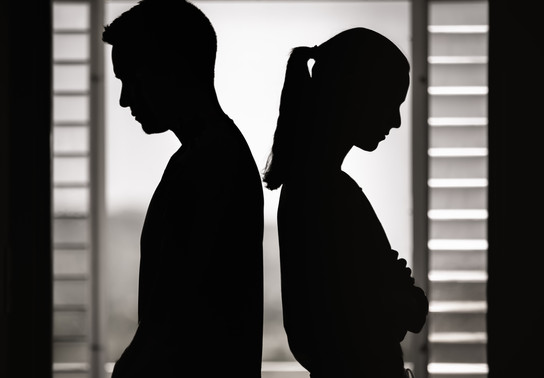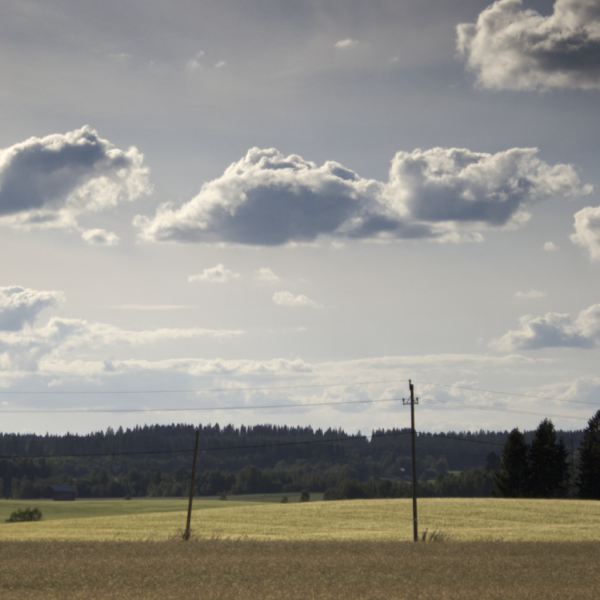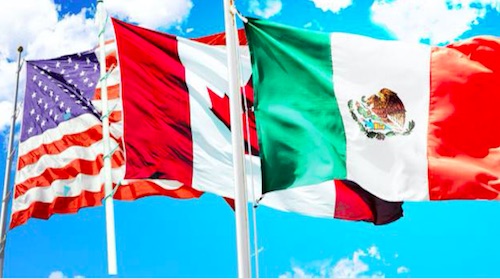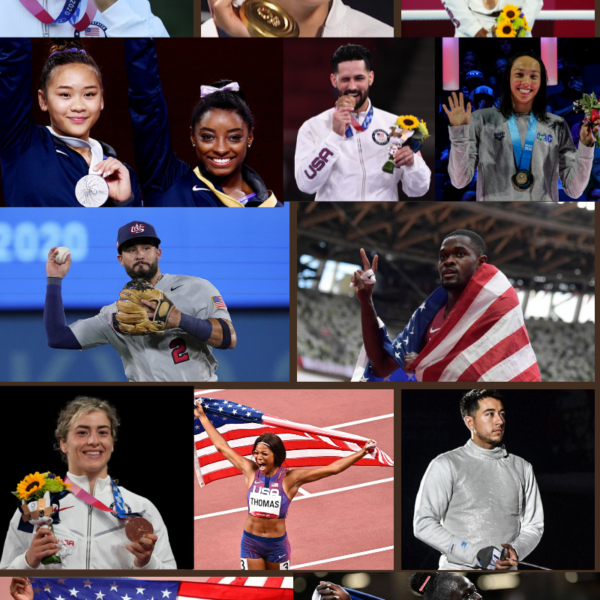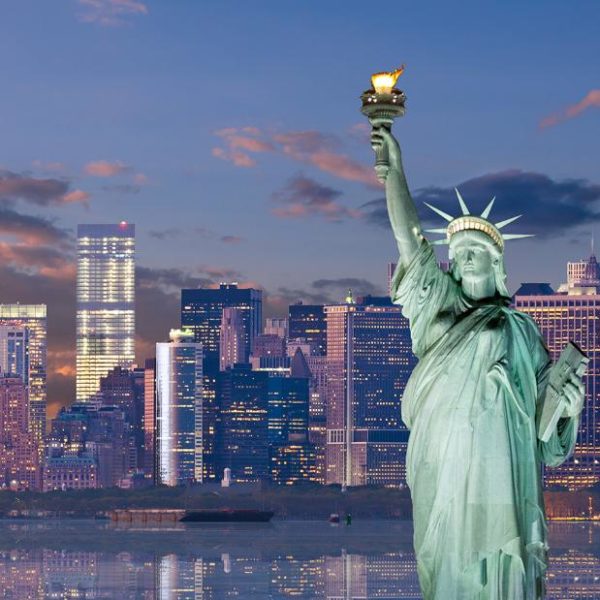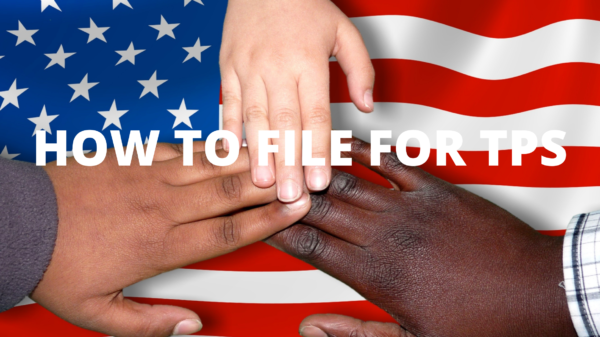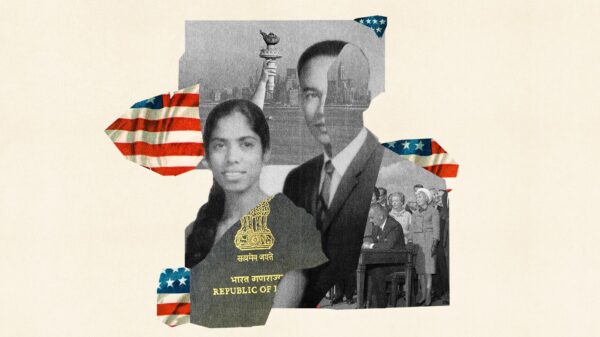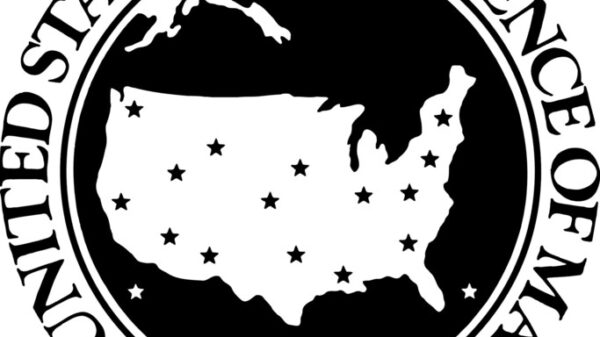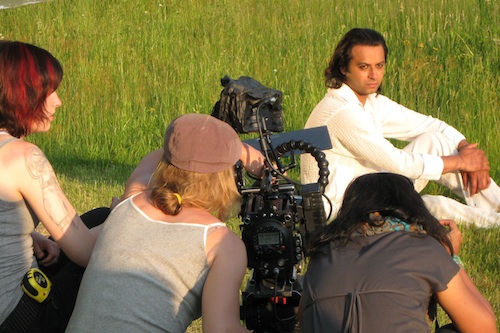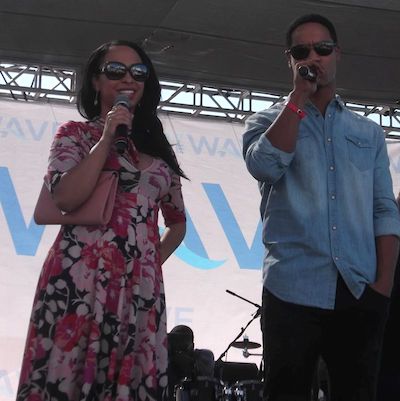One in three youth in the US experience teen dating violence. The consequences can be long-lasting and severe. Schools have sex education classes, but not many teach about how to have healthy relationships, let alone how to set boundaries and end unhealthy ones. Parents in many cases consider discussing romantic relationships or intimacy taboo. In a recent Ethnic Media Service briefing speakers — between the ages of 15 and 19 — were survivors of intimate violence and/or committed to preventing it through educating peers and parents alike. Members of the Partnership’s Youth Advisory Committee reflected a growing network of teen activists working on prevention initiatives with local domestic violence programs.
Synopsis
Dating violence is a serious issue that affects teenagers worldwide. It is estimated that one in three adolescents in the United States will experience dating violence, with girls being more likely to be victims than boys. This article explores the issue of teen dating violence, including its prevalence, warning signs, and ways to prevent it.
Jocelyn was a high school student who was in a relationship with a boy who became abusive. She describes how the abuse started with verbal insults and escalated to physical violence, leaving her feeling scared and alone. Eventually, Jocelyn found the courage to leave the relationship and seek help, but she struggled with the trauma for years afterward.
Some statistics on the prevalence of dating violence among teenagers, according to a survey conducted by the Centers for Disease Control and Prevention (CDC), one in three adolescents in the United States has experienced physical, sexual, emotional, or verbal abuse from a dating partner. Girls are more likely than boys to experience dating violence, and LGBTQ+ youth are also at higher risk.
Some of the warning signs of dating violence. These include jealousy, possessiveness, controlling behavior, physical aggression, and emotional abuse. The article notes that many teenagers may not recognize these behaviors as signs of abuse, and may even see them as normal or romantic.
Ways that parents, educators, and other adults can help prevent dating violence. These include educating teenagers about healthy relationships, setting clear boundaries and expectations, and modeling healthy relationship behaviors. The article also notes that it is important for adults to listen to teenagers and take their concerns seriously, and to provide them with resources and support if they experience dating violence.
Highlights the perspectives of youth activists who are working to address dating violence. These young people are using their voices and platforms to raise awareness about the issue and advocate for change. One of the activists featured in the article is La’Shaunae Steward, who is a survivor of dating violence. She shares her story and explains how she is using her experience to help others.
Tips from youth activists on how teenagers can protect themselves from dating violence. These include trusting their instincts, setting boundaries, and reaching out for help if they need it. The article notes that it is important for teenagers to have a support system and to know that they are not alone.
What is the message of hope and encouragement? It emphasizes that dating violence is not inevitable and that there are steps that can be taken to prevent it. By educating teenagers, providing resources and support, and empowering young people to speak out, we can work together to create a world where dating violence is no longer a reality for so many teenagers.
In conclusion, the transcript below sheds light on the important issue of teen dating violence. It highlights the prevalence of dating violence among teenagers, the warning signs to look out for, and ways to prevent it. It also features the perspectives of youth survivors and activists who are working to make a difference. By raising awareness about the issue and empowering young people to take action, we can work towards a future where dating violence is no longer a part of teenage relationships.
Opening speaker Meghan Tanahashi Communications analyst at the California partnership to end domestic violence talked about the role of young people in addressing teen violence, teen dating violence mitigation which she shared is still a difficult term for her.
Megan Tanahashi, Communications Director, California Partnership to End Domestic Violence
I help support our organization’s communication strategies, but my primary focus is on our media advocacy, which is why I think Ethnic Media Services is such a fabulous partner for us to have. So thanks again for having me here. The partnership is a coalition of domestic violence organizations and ally community partners along with survivors working to prevent domestic violence in California. We are part of a larger network of coalitions across the nation and each state and territory has its own coalition. So I know there are some reporters here. I’d be happy to put you in touch with some of the other coalitions if you are so inclined. I’m here to speak a little bit about the background of what the partnership is doing with you and why it’s so important to our work, and as Sandy said, every February is Teen Dating Violence awareness and prevention month also commonly known as TDBAM.
It is nationally recognized every year and this is a prominent campaign time for organizations, the movement, and domestic violence as a whole. A little bit about the work that we do for our campaign here in California, my first year working on this campaign in 2021 and this is when we first began our youth advisory committee for TV-am it was the first year that we needed to organize this event remotely due to covid and so there were a lot of unknowns which is ultimately what led us to work with you and speaking their advice directly from both past experience organizing this event pre-pandemic as well as being unsure on what strategies would resonate, would use who are currently experiencing a pandemic. We took a chance and asked you directly for their advice and we’ve done so ever since. A value that we often use in our communications work is passing the mind and this is our way of saying that we amplify authentic messengers. It’s valuable to have used lead on speaking on this issue because you today are able to give us an inside peek as to what relationships both intimate and with their friends and peers look like today.
Social media’s tenuous political climate and an unprecedented pandemic have created a completely new landscape that teens have to navigate today and it’s completely different from what I had to navigate 10 years ago, and I’m sure many of the adults here today had to experience. You are the best messengers not only to your peers, but they can also easily relate to legislators. These are the two main audiences for teen Dating Violence awareness and prevention month. Prevention is a key aspect of both the awareness month and our work at the partnership as a whole we believe that primary prevention is one of the most effective ways to disrupt for you the cycle of violence peer-to-bear prevention efforts can give you the tools. They need to successfully navigate being in a relationship and stop violence from ever occurring in their lives.
This is an important message for legislators to hear because our coalition is constantly advocating for some of these programs to have state funding. Mental health rates for youth are at all-time high and new studies also show that young women, in particular, are at high risk for experiencing violence at a young age, particularly sexual violence. And so our budget asks is also in partnership with the sexual violence coalition. And so this work is critical and youth are ready to speak out. They deserve a platform to be heard which is why the partnership is excited to connect you to this briefing.
First student speaker, Anna Campos spoke about her experience as a survivor of intimate partner violence.
I’m Anna Campos. I am 17 years old and I live in Orange County, California. I got into this work because I myself am a survivor of domestic partner violence and I thought it was super important to get help and help other people around me and people that need help because some people can’t help themselves. So I think it’s important for all of us to do our part to help each other because we’re all living on this earth together. I had been in that relationship with my partner and it was toxic, I did not see the red flags, I was blinded by fake love, and I thought what was happening was okay and it clearly wasn’t because my sister had been there to tell me. Hey, this is not normal, this is not healthy, this is not okay. And some of the red flags that I was constantly ignoring were that he was very manipulative, He would constantly check my phone without my permission and just be angry over the smallest things and those are all red flags that I should have seen but I thought oh, he just cared, he actually just likes me, it’s fine, but it’s not fine because those are toxic things that lead to even bigger things as a lot of people know, and I think part of the reason why so much domestic violence happens in teens is that they don’t know what the red flags or the green flags are. And if it’s not taught at home, or if it’s not taught in schools, how are they supposed to know? Because a lot of kids gather information from social media and social media is as we all know not the best place to get information for a lot of things because it romanticizes a lot of abuse and movies and stuff like that like romanticizing rape and that’s not okay. And if it’s not being taught at home, then they’re just gonna think social media is what real life is. But it’s not another example of social media not being real; you could see a couple’s post and it seems super happy, but it’s not. That’s not what the reality is and a lot of people just think, Oh well, I’d rather be loved, at least some sort of Love instead of no love, but that’s not healthy either because not all love is love. It’s not what you think it is and I think having an education at school regarding what the green flags are and the red flags are is so crucial and so important for the kids’ lives and for their relationships going forth because school is where everyone is mandated to go and if we don’t start at school where are they are going to start, where are they gonna get their information? And those young kids grow up to be older adults and can continue this cycle of abuse. We have to start when they’re young. My sister was a big part of the reason why I came to realize that this relationship was not healthy, and I think it’s so important so crucial for kids and teens to have that space and be able to talk to someone like my sister, like a family member, or a trusted adult or counselor at school. If they don’t trust their adult which is why it’s also really important to train counselors on how to deal with this topic is being brought up and to trust into train other adults as well to be able to help the situations. I certainly see that young man. Do you think women and young girls are not as good as them? I think there’s definitely this superiority that they feel in themselves and that’s totally not okay I see that with kids at our school, kids outside of school and I think that’s also like a root of society. Society puts pressure on them as well to be. masculine, or to have like super big ego. Stuff like that and I think another trait that society likes pushing is to be the dominant one and for people to assert their dominance, they could think of that through violence. So I think that’s also a reason that it could be happening with other youth as well. Who knows better to talk to you about certain problems other than other youths? I think talking peer-to-peer is a lot easier and I feel like the idea is more welcome instead of it coming from an adult. So I think it is effective and more people do need to be educated about it because I know a lot of people don’t even know what teenage violence is. A lot of people think it’s just physical but it’s mental and psychological. So I believe that youth speaking up about our problems is really effective. I currently go to therapy. I have been going to therapy for almost two years and I think having that is another additional safe space apart from my sister, having an adult and a licensed therapist and someone who’s trained to talk about this with me was really good because we both help me better understand the situation and I blame that a lot of myself. I said I should have seen it. It was my fault, but it wasn’t my fault and it’s I think my therapist really helped me get through that. It does have lasting effects because still the same I am reminded of what happened through pictures on my camera roll or something like that or stuff like that. But um, yeah, it definitely did have a lasting effect, but yeah, I got over it with the help of my therapists and I broke it off because my sister had told me, “it’s not good for you “, and I did it over text because I did not want to see his face ever again.
Next Youth Speaker, Maya Lucia Henry
I’m Maya Henry. I usually go by “they” pronouns and I’m currently 16 and a junior in high school in Los Angeles. I kind of come today as a youth organizer for peace over violence, which is a prevention and violence Recovery Center based in Los Angeles as well. And I really first got my start in this work through the GSA Network and advocating for lgbtq+ and empowerment. As I continue to learn about gender-based violence and sexuality-based violence I just continued to want to learn about how we can prevent that from ever happening.
Starting at a very young age. I would say maybe at 11 or 12 my friends and when we started to take the bus to and from school we knew without even having to ever really promote each other that we were going to pull down our uniform skirts and put on our uniform sweaters when we got on the bus because we didn’t want to attract any unwanted attention from grown men even at 12 years old.
Even now if I’m going out with friends I at all times have the location of at least my friends. That’s something we do, check. Unfortunately, at times we’ve had to let parents know that we could not find their kids. We use the buddy system always, we never leave drinks or food unattended, and if we accidentally leave a drink out at a party we will never drink from it because without even talking about it, we know that there’s danger in that.
We never even had to be told we just could look at the media and we could see stories about girls like us getting spiked and date raped and then if we go to parties we would just simply know that it was up to us to take steps to prevent that because there wasn’t a framework for the violence. As a queer person, I and my peers are constantly told that it will be a miracle if we find love and that kind of healthy and negative perception that time and time again is thrown at us can only make unhealthy relationships more prevalent because if you’re constantly being told that you’re never going to find love or you never see examples of healthy non-abusive love in textbooks and sex ed classes, on TV, in your favorite novels, Um, and you also are ready, are potentially dealing with trauma that oftentimes comes with being from a disenfranchised community like lgbtq+ community, it just creates a horrible environment where it’s really hard to understand what constitutes a healthy versus unhealthy relationship and also means that should you find yourself in an unhealthy relationship you might be so scared to leave that relationship because all you’ve been told your whole life is that nobody will ever love or accept you as you are, so suddenly the violence seems okay because you’re still being loved. What you were told you would never be.
I mean, I hope to run our school’s Spectrum Club, which is for the gender and sexuality alliance. There have been people in there who are in seventh grade who are talking about how their first girlfriend or their first boyfriend has mistreated them and well, it might not be physical abuse, it’s mental and emotional manipulation and abuse and that is one of I think the worst thing to see because it’s someone who hasn’t even learned pre-algebra yet, but they’re learning what the violence is and what it feels like having to click it up.
Trauma can only lead to more trauma, it just exists and then a never-ending cycle where nobody wins and everybody loses. And that encompasses all types of violence; gun violence and physical abuse, partner violence, overuse of drugs or substance abuse, those all exist as never-ending cycles that just feed into one another time and time again, it hurts more and more people and I think it’s just one hurt person. It’s so much easier to inflict that harm on someone else if they haven’t properly healed and they haven’t gotten the resources to heal and to better themselves and when you are kind of given trauma and you are traumatized, that’s all you know.
How can you be expected to know what a healthy relationship looks like? So I just think when we’re talking about violence, we have to think of it as a cycle and not as something where there’s one perpetrator. I think that just shifts the blame onto a single person when the blame is really the system. The blame is the never-ending spiral of violence, but just like hurt people hurt people, I think healed people have the power to heal people. I think that if one person learns nonviolence and continues to teach that to their friends and their family and their classmates, and their peers they can only do good things for the world.
How do you go about healing? Helping people heal, I think comes in a lot of different ways and for everyone that might look different but I think in my experience with unlearning certain behaviors and attitudes and stigmas and also my work of trying to further what I’ve learned from others.
A lot of times it starts with making the conscious effort to not judge yourself or others and it’s very easy to say yeah, I’m not judgmental but to actually sit down with someone who may even be afflicting violence on someone else and try and find a place where instead of looking at them and thinking about the violence they’ve caused because think about the potential they have to answer that violence and apologize and learn and make right the wrong. I think that can be really helpful. I think a lot of it comes from asking questions and seeing work. And then from there work through the restorative justice techniques to not only make sure that the perpetrator of the violence learns and apologizes and makes good on what they said. They will do work to better themselves, but also to make sure that the victim of the violence gets their closure and if they have anything they may say or they need further accounts than that. They get that lecturing that someone and telling them you’ve done this wrong and this what you need to do., I don’t think that accomplishes much but I think conversation and really empowering people to take ownership of their actions and then better their actions, I think that is how we can make a change. I’ve been able to find joy absolutely in some places, but there are also some things that I’ve never gained back.
There are some places like I know three, I take the bus to and from school almost every day. That’s a place where I’ve been sexually assaulted more than once and so that’s a place where I don’t think joy can ever exist in that space for me. You know, whenever I’m on the bus that isn’t a place I’ll ever have earbuds in or read again. That’s a place where when I go on the bus and I’m not in my uniform I make sure to always have some sort of Rapid cardigan if any like cleavage would be otherwise, um, and I absolutely have found joy in the amazing and supportive friends and in other places where I do feel very safe and comforted but I think that the thing about violence is that it robs you of your innocence forever. Um, and I don’t know if that’s something that you could ever really give back or take back and I hope one day that’ll happen. But you know, there are certain people who I can no longer ever truly feel fully safe around their places where that’s the same.
But I think I still am able to find joy and I think that sometimes it just comes from people in similar lines of work or who also really care about this because I feel like I can talk to them and never be judged because they’ve been through some more things or they really care Duty about that. I don’t know. I think that one of the worst things around in my personal experience has just been never feeling truly safe again. I think it’s really hard to be. Joyful without feeling safe.
Thank you to both of our speakers on video. And now we’re very pleased to be able to welcome a student on the zoon. It almost feels like in-person. I want to thank Armon Sharma for being able to navigate your school curriculum and be able to speak and join us at the conference. You’re also speaking as a young man so that too is of great interest to us on this topic. So Armand welcome.
My name is Armon Sharma and I’m a high school sophomore at Alison Montessori middle slash High School while also taking courses at Loni College in Fremont, California, which is kind of in the South Bay Area.
I’ve grown up in Fremont for my entire life in an Indian American household with two parents. And in older sister to contextualize Fremont today is a pretty big suburb and more than 60% of its population is Asian.
I’m sharing this because this type of diversity has played such an important role in my life. I’ve grown up around people who look like me share a lot of the same cultural elements and face some of the same problems at home Etc.
However, I’m like a lot of my peers my parents have given me and my sister quite a bit of Independence that I’ve allowed me to explore the arena of prevention of work in the first place.
Do this work? I’ve come to see two major issues for many of my South Asian peers in Fremont and Beyond.
The first is that dating is such taboo in South Asian cultures. I just went to India this past January my dad’s side of the family whom we most commonly visit lives in a village in the foothills of the Himalayas in a state called Himachal Pradesh, which is quite rural if that detail wasn’t already conveyed.
We hadn’t visited since the summer of 2019 due to covid so when we went this year, I was much older and was actually able to converse with my teenage cousins there.
I’m surprised the topic of dating came up and a lot of my cousins said they were dating or had dated in the past but kept it from the majority of their family.
Love marriages itself are a novel Concept in India. Let alone dating although Indian parents in America are generally much more open to these Concepts dating and intimate relationships are still something. That is so sparsely discussed with youth
The second issue is really an implication of the first being that the lack of dialogue about relationships or dating leads to the lack of dialogue about problems with these relationships or team Dating Violence.
Parents are some of the most important people in a youth’s life. If not, most appearance don’t initiate a conversation about dating or relationships. Don’t create a safe space for discussion teens will lack in their education about these topics and we’ll have to turn to other potentially misleading sources and will not feel comfortable discussing these topics with parents ever.
What then happens needs little clarification problems with relationships or team Dating Violence will go unchecked youth will suffer and Cycles the violence will continue.
I will, however, say that while I’ve been framing this as an issue that is specific to South Asians, which is why organizations like NARIKA exist, which has been mentioned in the chat every parent has worked to do including my own.
While my parents have given me and my sister a great deal of Independence growing up, they have also shielded us or at least me from harder experiences that they wish to only see adults go through.
I’m currently enrolled in a school, and the high school portion of it has 30 people. At elementary and middle school, I went to extremely small schools which were very protective. I mean don’t get me wrong attending these small schools definitely has its perks. I’ve made lifelong friends and know every single person around me. However, it also has its cons specifically regarding relationships. My parents have repeatedly told me that they didn’t want us to go to a bigger school.Sorry that they didn’t want us to go to a bigger schools because they didn’t appreciate or like their experiences in high school. However, going to these small schools created a misperception of the rest of the world and introduced me to a very small scope of people, so that making connections with others I wasn’t constantly around became much harder and under-prioritized education about relationships or teenage violence because it wasn’t perceived to be a relevant issue.
Here’s why those two factors were and continue to be harmful.
One, exposure to a limited number of people and to a very non-diverse group of people means that you get used to these same people and live in a sort of bubble. However, when that bubble gets popped, it becomes more and more difficult to engage with others and develop healthy relationships because up until that point you haven’t been introduced to a variety of perspectives.As I got older I started to realize the negative impact this environment has had on my ability to make friends with others, especially those who don’t have a lot of the same ideologies or opinions that I share which has personally been really annoying because I’m a people person and I love interacting and socializing with others.
The second reason why this is harmful is that yes, my school is right that they may not see teem dating violence occur on campus or at present, however, they have to realize that high school is not the entirety of life. It does often enough serve as a foundation for the rest of life. If you don’t have curriculums in high school that prioritize education about relationships, students leaving or graduating will not have the proper foundation and will not have the necessary building blocks to succeed in such relationships. My school has one class in freshman year that briefly mentions relationships called, ‘Choices‘. That’s a start but not nearly enough and so far as every single person has relationships in their life regardless of whether they’re ever intimate or romantic, relationships are relevant to every single person. I couldn’t say the same about calculus. So why don’t we teach about relationships more?
I think the answer is pretty simple, and it’s that everyone thinks that developing relationships is a natural skill that all humans have and while that may be true to a certain extent, we can’t say that about developing healthy relationships, if that were true, why do we see one in three teens in America in dating violence whether physical, sexual, emotional or psychological?
So while teaching about relationships may not fall into the conventional norms of schooling in America or let alone anywhere, those norms need to change and there are a plethora of organizations that are trying to change this.
However more than that. I saw three aspects that were specifically relevant to me that truly pushed me to learn more about this field and be a part of this movement.
The first is what has already been touched on. I’m a people person. So learning how to develop healthy relationships for myself and others has always been something that I found particularly important.
The second is that our generation faces unique factors such as the growing influence of media or bursting health crises, mental health crises that are feeding higher rates of teem dating violence, which is why the CDC report released just in the past month said the rate of teen dating violence is much higher than seen before.
The third is the lack of diversity in the field. Conventional intervention work is let’s face it extremely gendered; you rarely see males in the field, which I find to be absurd and a major problem in itself.
These three factors are what initially pushed me to become a youth leader. Covid and the vaccine in an analogy for teen dating violence and prevention. Just as covid has been evolving with all its new variants, teen dating violence has been as well. I found this point to be particularly interesting because it stresses the unique need for increased advocacy and support. Right now the mental health of the majority of youths in the Bay Area and in America generally has been deteriorating at faster rates than ever and the pandemic and quarantine only helped speed up. This process was higher rates of depression and anxiety experienced among these youths, this is devastating because the implication of poor mental health including low self-esteem and feelings of loneliness all serve as risk factors for becoming a perpetrator of dating violence or becoming vulnerable to such victims.
So while we may not consider covid as a threat anymore the Mental Health crisis, which it contributed to surely is, we scrambled for a vaccine, so we should be scrambling for more prevention.
Additionally, the growing influence of unregulated social media and media, in general, is posing a greater threat to youth with each passing day. We all know that this generation cannot go without the use of a device for an hour let alone a day. a vast majority of time spent on devices is on social media apps like Instagram which often glorify romantic and intimate relationships and create misconceptions. Social media literally is a platform or perpetrators of violence or predators who now have easy access to a whole lot of youths, another problem that is emerging uniquely today.
Netflix even has movies like ‘365 Days’, which quite literally romanticized rape. We may be a society that values freedom of speech or the lack of regulations on media platforms or the internet, however, we can’t just sit idly by and watch our youth get hurt by the platforms and say oh, well, there’s nothing we can do about it now. No, they’re literally called prevention, which means education in schools about relationships, and healthy relationships. Prevention means funding mental health care and increasing access to under-prioritized communities.
Perfection means funding for targeted Innovative programs that work with specific communities that help resolve unique issues regarding dating and dating violence. Prevention means finally prioritizing underfunded areas where prevention programs are less robust and overlooked.
If I could just briefly talk about diversity. It’s just something that I want to discuss a little further simply because of how little it’s been discussed previously. So teen dating violence as we should all know is not something that affects only one group. It can affect everyone including men and in fact, marginalized proofs like the LGBTQ+ community often experience much higher rates of such violence, but we’re seeing so little representation in this field and it makes no sense because we can’t attempt to solve a problem that affects everyone if everyone is not involved to stop it.
Therefore it maybe complete to say that, ‘injustice for some is an injustice for all,’ but that’s simply the truth. So as long as we continue to see the same groups represented in the movement against intimate partner violence will never achieve progress to the extent that we desire to and that we need to.
Kennedy Lewis Executive Director of Positive Results Center.
In Los Angeles and a member of that City’s civil and Human Rights Commission. Glad to have you as our final speaker on this because you know as a parent and grandparent I’m sitting thinking. What can I do, what can we all do to address this?
I am the CEO of Positive Results Center and we address trauma revolving around intimate partner violence, sexual assault, and bullying, I think it’s critical that we really look at the fact that we’re not having the conversations at home. Violence and abuse begin in the womb and when we are not having conversations at home about healthy relationships and mainly because parents are so concerned that if we talk about healthy relationships, we’re giving our children permission to have a relationship, but when we don’t bring up the conversation, our children are left to look at their environment and if a family is having an unhealthy relationship that child will assume that this is normal. And so it will go into their relationship.
Most of the time when we see violent abusive relationships, we’ll see it at home. We’ll see it with our siblings and their relationships and we will model that relationship as well. So we have to make sure that we are not only addressing negative conversations or negative behavior in our cells but those that are around us.
It’s important that we talk to our children about what a healthy relationship is or if you’re in an unhealthy relationship talk to them honestly about that because as people, we want to be loved and we want to be accepted. And so if we’re not getting the kind of attention that we need we will go and seek that negative attention because the difference between positive and negative attention is nothing. It’s still attention and we’re gonna get it from wherever we can find it.
So the conversation should begin at home. What is a healthy relationship, what is acceptable behavior? What is unacceptable behavior? Parents who are unfamiliar with these conversations and are afraid to have those conversations should seek other agencies. They can contact The California Partnership in Domestic Violence. They can contact me or anyone else. What we do is we work with Youth and Young adults and we train them to be peer advocates.
And we don’t just come up with ideas, we bring the Youth and Young adults into the conversation and we ask them, ‘what do you think is important for people to know? What do you want people to see?’
Parents also have to remember that, the relationships and the way they dated when they were younger, it’s different from today.
We are we don’t have the same kind of relationships as a young girls. I remember my mother.
And father told me I could not date until I was 16 or 17 years old.
Now I was okay with that, but I saw other people that snuck around they snuck out windows. They went to school and they dated and they wouldn’t tell their parents that they were dating. So now abuse can happen because your parents don’t even know you’re dating.
And so if they don’t know you are dating, you’re not gonna tell them about the abuse that you’re experiencing.I also want to bring up the fact that television, videos, also, social media are showing very unhealthy relationships. They think it’s very cute to expose your body, to be in abusive relationships, to even be shared among people instead of having a relationship with one person. The music industry is telling you it’s okay to be passed around and that’s where a lot of abuse begins as well. I have to give credit to the young people that spoke before they really touched on this and in such a great way. But I’m gonna go back to it again, parents, learn to have a conversation with their children from a place of love and acceptance as opposed to shame and blame. Because once you talk to a child and you’re shaming them and blaming them and not just a child, anyone, people shut down. We’re not going to have any kind of conversation or an honest conversation. If you are shaming me and blaming me as well, and that is what happens a lot of times in abusive relationships, that shame and blame, and make the person who is being abused feel like it is their fault when it is never ever their fault, even if you don’t know the signs or you know the signs it is not your fault that you’re in an abusive relationship. It’s about power and control and you don’t have to be of a certain size or have a certain financial background, ethnicity or gender to be the person that is the most empowered or that has the most control so be aware of that.
And then also especially since I’m gonna say since I was young when I was young there was always someone at home. Now especially because of covid, we didn’t just walk through one pandemic,we walked through five pandemics. The pandemic of covid, the pandemic of sexual assault, the pandemic of domestic violence, the pandemic of economic disparity and housing and security and so now parents have to go to work and maybe work two or three or four jobs. And so our children don’t have the same opportunity to speak with a trusted adult.
And let me just say this, sometimes trust adults and I’m not necessarily talking about families or our parents, but sometimes a trusted adult is not a trusted adult. It’s very difficult to find trust and an adult that not only is trusted but has time and bandwidth to have the conversation with. So because the parents aren’t at home or maybe they’re home and they’re working, they don’t have an opportunity to really stop and talk to their kids. But I’m going to encourage every parent to set aside some time just like you have a date night with your partner, have time with your child, have a date day or a date time even if you’re coming home from work and spend 15 minutes. Just ask them honestly, how was their day and listen attentively, don’t do two and three and four other things while you’re talking to your child.
Your child really wants to know that you care because if you don’t take the time to talk to your child someone else will.
And that other person may not have their best interests at heart.
Another person could be the abuser.

